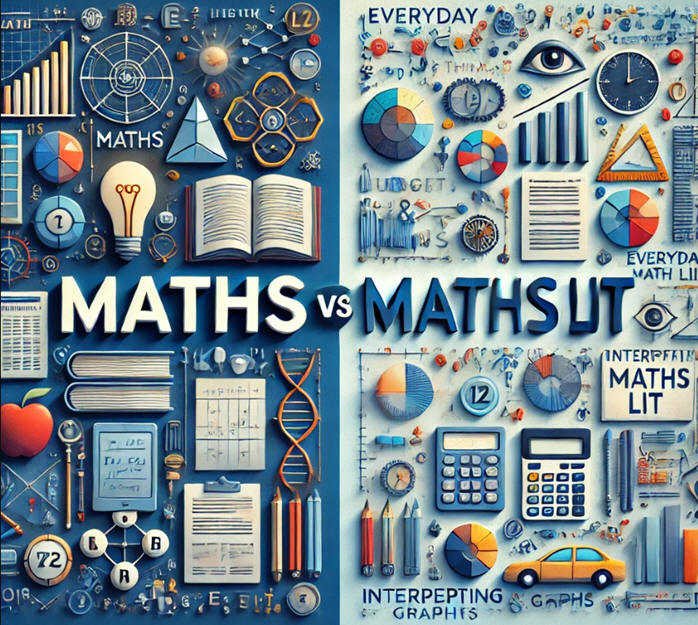|
Mathematics or Mathematical Literacy? |
||
|
At a national level, the question is often asked by policy makers: What should the ratio between Mathematics and Mathematical Literacy be? Should the top achievers in Mathematical Literacy not have taken Mathematics instead, given that Mathematics opens up far more opportunities? Over the past 13 years, the proportion of learners taking Mathematics has steadily declined - from 48% in 2010 to 32% in 2023, meaning only one in every three learners now chooses Mathematics. The value of Mathematics is well recognised, and the value of Mathematical Literacy as a subject is not questioned either, as it clearly fills an important gap that existed before the subject was introduced. However, learners face a challenge: Which one should they choose? The decision between Mathematics and Mathematical Literacy is a critical one for learners in the FET Phase, as it influences future studies and career opportunities. Here's detailed advice to guide learners in making the best choice based on their abilities and career goals: Mathematics Mathematics focuses on abstract thinking, problem-solving, and logical reasoning. It is a challenging subject, but mastering it opens doors to a wide range of careers that require advanced numerical skills. Career Paths for Mathematics:
If you aim for careers in these fields, universities and colleges often require Mathematics as an entry prerequisite. Some bursaries and scholarships for specific degrees also demand Mathematics, not Mathematical Literacy. Who Should Choose Mathematics?
Mathematical Literacy Mathematical Literacy is a practical subject that focuses on applying mathematics in real-life situations, such as managing finances, interpreting graphs, and working with basic data. It equips learners with essential numerical skills needed in everyday life and non-technical careers. Career Paths for Mathematical Literacy:
Mathematical Literacy is accepted for many courses at universities of technology, TVET colleges, and in certain humanities and business programs. It provides the foundation for learners pursuing practical careers where advanced math is unnecessary. Who Should Choose Mathematical Literacy?
Important Considerations Before Deciding
Ultimately, the goal is to choose the subject that aligns with your strengths and future ambitions. Whether you choose Mathematics or Mathematical Literacy, success in your chosen field will depend on your dedication and passion for your studies. ***** Source: https://www.dailymaverick.co.za/article/2024-10-21-solving-the-maths-equation-in-sa-amid-a-positive-symbol-and-overall-negative-trend/
|
||
|
|
